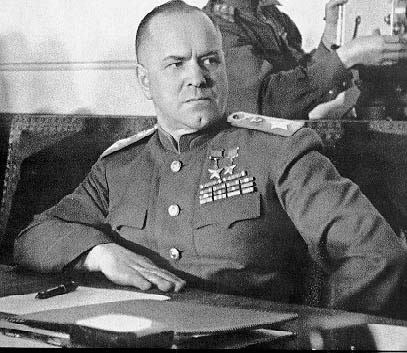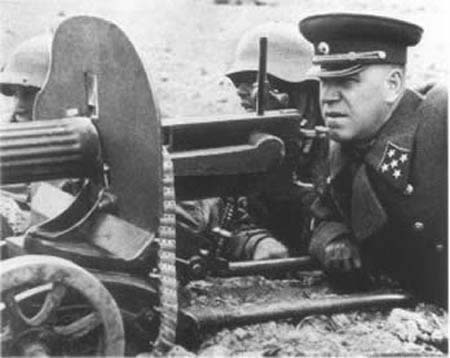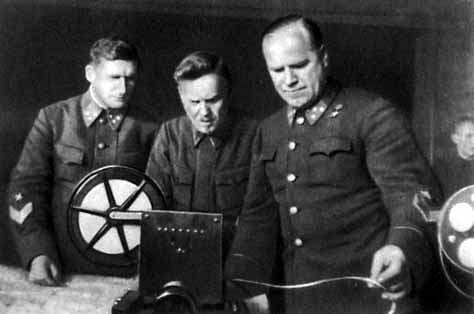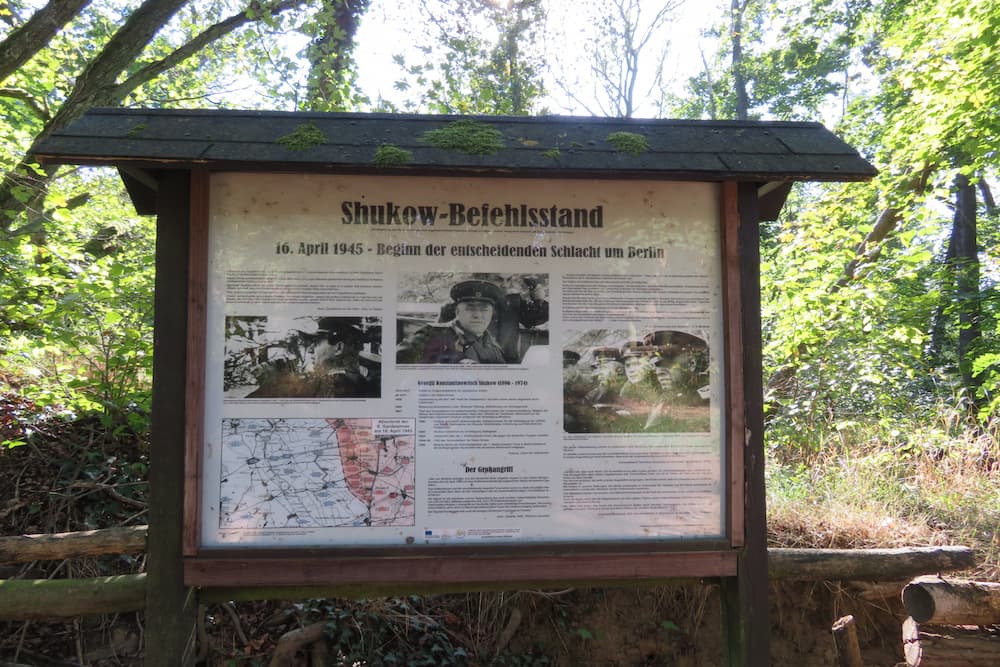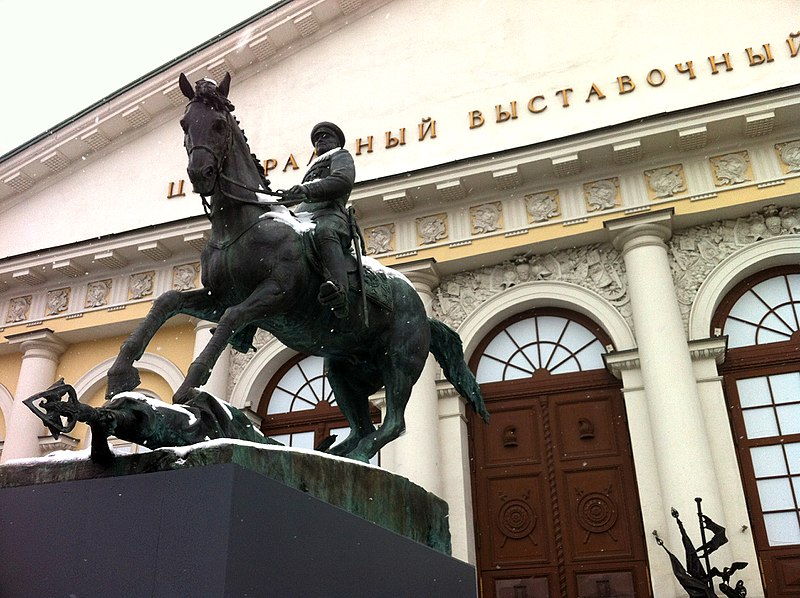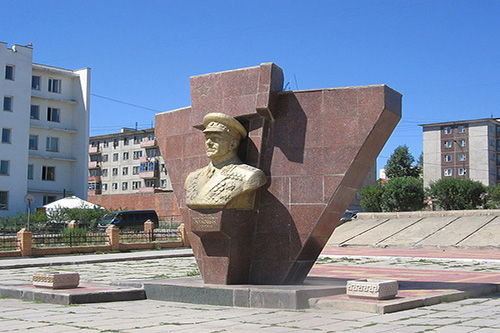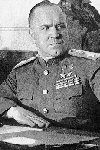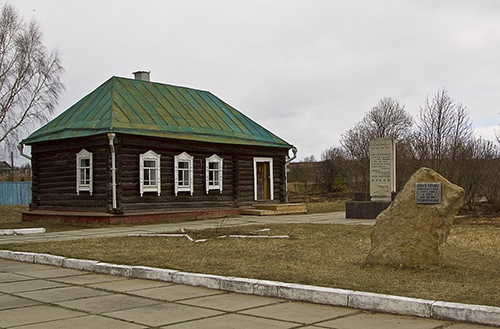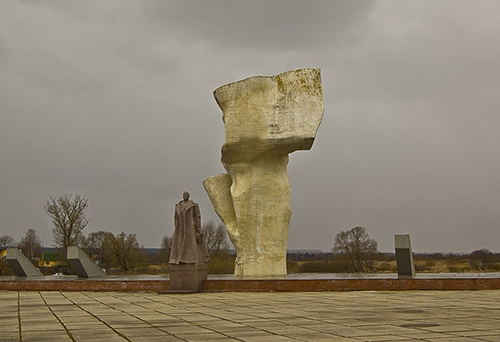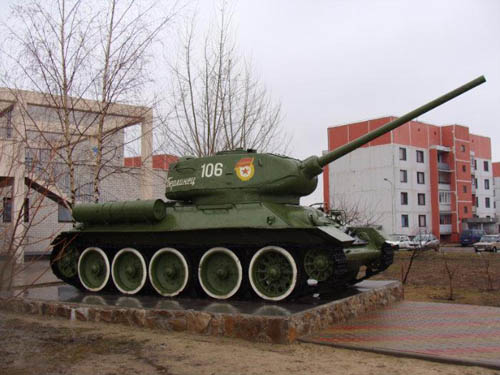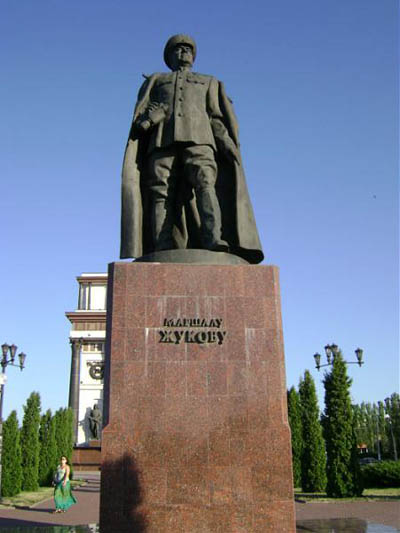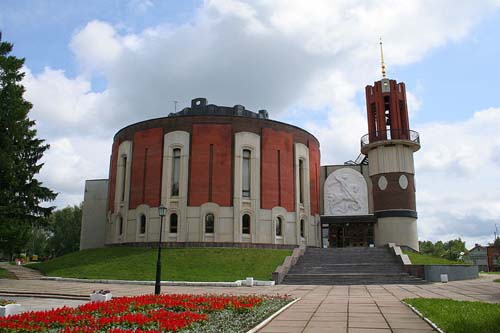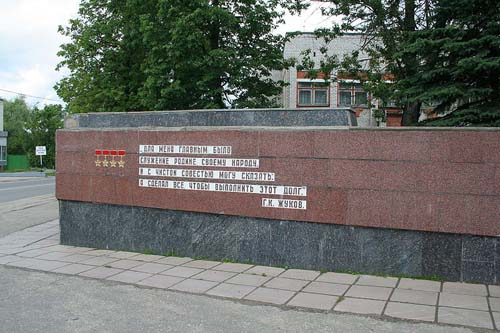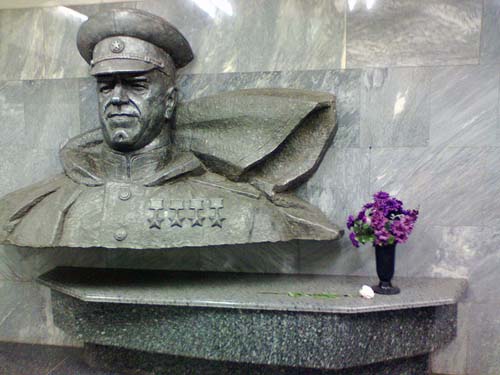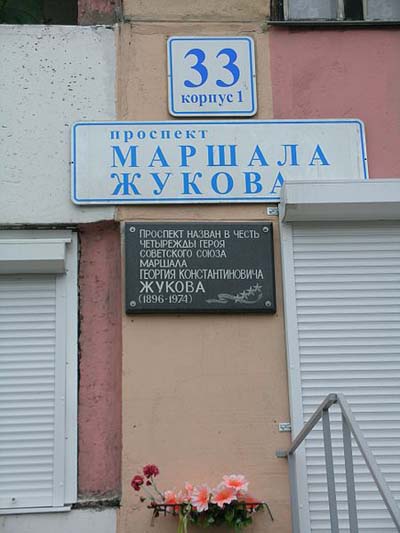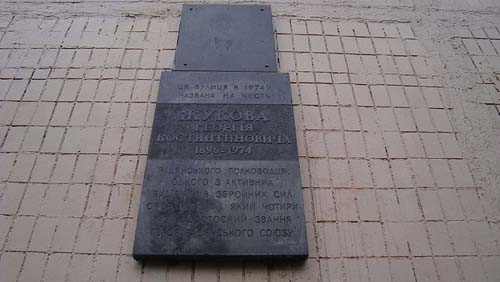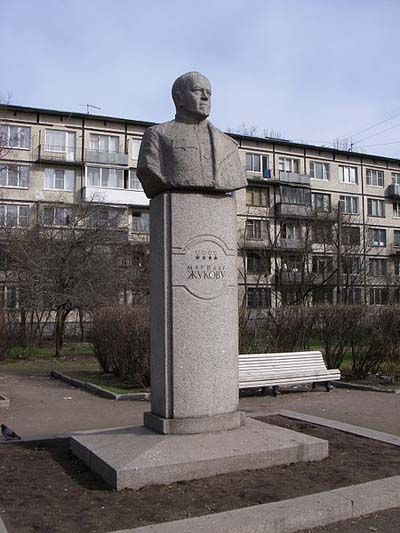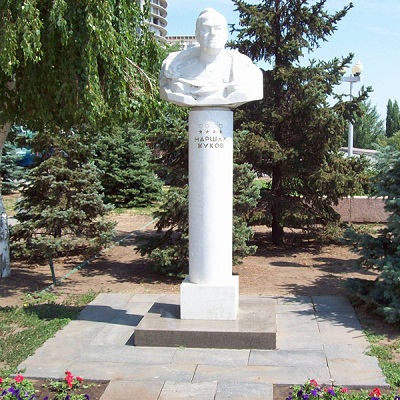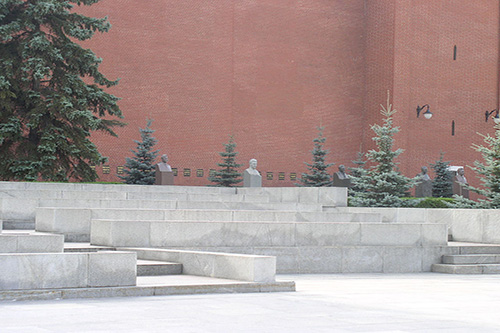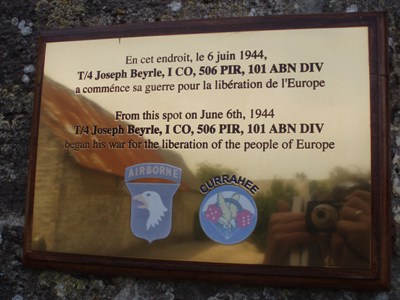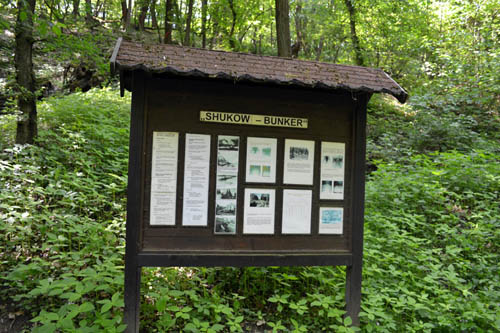Georgy K. Zhukov (1896-1974)
Georgy Konstantinovich Zhukov was born December 1st, 1896 in Obinskoye in the vicinity of Kaluga. He grew up in bitter poverty and at the age of 10, he left for Moscow with his uncle to go and work in a factory. Zhukov ended his youth in working days of more than 12 hours and at night, he slept on the factory floor.
Consequently, World War One came as a gift for 19 year old Zhukov. He was called up to serve in the cavalry of the Czarist Army. Zhukov stood out for his tactical capabilities and in 1916, he was granted the unique opportunity to take an officers’ course. After graduation he returned to the front. He became a casualty but he was decorated for his great courage as well.
Following the revolution of 1917, Russia disengaged itself from the battle. Zhukov suffered from typhoid and returned home. Because of his background as a laborer, he joined the Red Army in 1918 and became a member of the Communist Party in 1919. During the bloody civil war against the White Army, Zhukov clearly demonstrated his qualities of a brilliant tactician. He was placed in command of various cavalry units, proving himself as a master of mobile warfare.
After the end of the civil war, Zhukov remained in the army and was placed in command of a cavalry regiment in 1923. Zhukov rose steadily but inconspicuously through the ranks of the Red Army. He went to study military history at the Frunze Military Academy in Moscow and graduated in 1931.
As early as 1930, Zhukov had been placed in command of the 2nd Cavalry Brigade, taking part in large military exercises. His superiors were impressed by his qualities. He started experimenting with armored warfare. Moreover, he delivered lectures and wrote articles on how a modern war should be waged.
During the great cleansing, Stalin (Bio Stalin) carried out in the top of the Red Army, Zhukov saw his superiors being steadily eliminated. The revolutionary military doctrines of Marshall Tukhachevski were thrown into the waste basket and Zhukov was distressed to see that as far as tactics were concerned, the Red Army was back to square one. Nonetheless, he managed to escape the cleansing himself.
In July 1939, Zhukov was dispatched to the eastern border of the Soviet Union to face the Japanese Kwantung Army that had invaded Mongolia. Zhukov reorganized the Soviet defense and launched a number of brilliant counter offensives in combined attacks with infantry, tanks and aircraft. His counter attacks were successful and within three days, the Japanese were pushed back across the Mongolian border. For the first time in his career, Zhukov became a nationally known figure. He was awarded the prestigious decoration Hero of the Soviet Union. At the same time it became clear Zhukov was merciless. He squandered thousands of Soviet soldiers in order to achieve his military objectives.
In 1940, Zhukov was placed in command of the Specially Military District of Kiev in the western Ukraine and he was promoted to General. At the close of 1940, Zhukov was appointed Chief of the General Staff, a post he also held at the time of the outbreak of the war against Germany. He was tasked with drafting a detailed plan to effectively repulse a German invasion. In the spring of 1941 he suggested to Joseph V. Stalin to launch a pre-emptive attack on the assembling Germans on the western borders of the Soviet Union. This plan became known as the Zhukov plan. At the end of the day, Stalin rejected the plan as he considered it too daring.
The weeks following the German invasion on June 22nd, 1941 were the darkest days in Zhukov’s career. Being Chief of the General Staff, he watched with distress how the Germans scored great successes and destroyed large numbers of Soviet troops. On July 29th, a conference of Stavka (supreme command of the Red Army) was called in Moscow. Zhukov proposed to evacuate the region around Kiev in order to realize a more stable front. Stalin rejected Zhukov’s proposal which prompted him to resign as Chief of Staff which Stalin accepted. Zhukov was succeeded by Marshal Shaposhnikov. Zhukov did not remain idle for long as he was given the task to advise the commanders who had been involved in the operations at Smolensk and the western Ukraine.
At the end of September, Zhukov was named commander of the Soviet forces around Leningrad, replacing the incompetent Marshal Kliment E. Voroshilov (Bio Voroshilov). Leningrad was in great danger but Zhukov managed to stabilize the local situation in record time.
On October 6th, Zhukov was summoned by Stalin to share his opinion of the danger of the new autumn offensive that posed a threat to Moscow. Four days later he was appointed commander of the Western Front, making him responsible for the defense of the capital. Despite large shortages in men and material he managed to put a stop to the German advance, driving the Wehrmacht away from the gates of Moscow in a brilliantly executed counter offensive. This was the first major defeat of the war for the German land forces.
Zhukov’s opposition against Stalin’s plan to launch a general offensive in the spring of 1942, caused him to play a rather passive role during a few months. However, when the Soviet offensive, launched by Marshal Semyon K. Timoshenko (Bio Timoshenko) from the salient near Charkov failed dismally and the German Heeresgruppe Süd penetrated the German defense in the direction of Stalingrad and the Caucasus, Zhukov was the oldest member to be sent to Stalingrad by Stalin to organize the defense of the city.
At Stalingrad, just like in Moscow, a tenacious defense in the center of the line went hand in hand with a massive and steady build up on the flanks. Working together with Vasiljevski (Bio Vasiljevsky), Zhukov had worked out the plans for a counter attack. The result was the total destruction of the German 6. Armee commanded by Feldmarschall Friedrich Paulus (Bio Paulus) during which a total of 330.000 German soldiers were either killed or taken prisoner.
The offensive against the Rzhev salient in the sector of the eastern front has always been swept under the rug in the official History of the Great Patriotic War, published by the military organs of the Soviet Union. The offensive, code named Operation Mars, had been devised by Zhukov and was launched at the same time as the encirclement of the German forces in Stalingrad. Contrary to the counter offensive at Stalingrad, Operation Mars ended in disaster as 500,000 Soviet soldiers were slaughtered in massive frontal attacks on the German positions. Despite this setback, General Zhukov was promoted to Marshal of the Soviet Union on January 18th, 1943.
In July 1943, Zhukov played a prominent role in the Kursk salient as representative of Stavka where the German summer offensive was utterly defeated, followed by a brilliantly successful Soviet counter attack. From that moment on, the Red Army retained the strategic initiative until the end of the war.
Subsequently, Marshal Zhukov played a key role in a number of massive offensives, driving the Germans out of Byelorussia and the largest parts of Poland and Silesia. In the last year of the war, Zhukov was placed in command of the 1st White Russian Front, extorting an ideal starting position for a direct attack on Berlin out of his bridgeheads on the river Oder. Stalin used the rivalry between Zhukov and his arch rival Ivan S. Konev (Bio Konev), in command of the 1st Ukranian Front, by calling a race between the two. The aim was to capture Berlin as soon as possible. When Konev’s spearheads stood at only 200 yards from the Reichstag building, Stalin decided the building was to be captured by Zhukov’s units. In this way, Stalin granted Zhukov the honor to enter history as the conqueror of Berlin.
On May 8th, 1945, Zhukov accepted the unconditional surrender of all remaining German armed forces, co signed by the German field marshal Wilhelm Keitel.
For quite some time after the war, Marshal Zhukov was the Soviet supreme commander in Germany but later on, he was placed in less important functions by Stalin, who was jealous of his popularity. In 1955, two years after Stalin’s demise, he was appointed Secretary of Defense but in November 1957 he was suddenly relieved of his post and later on he was charged with "entertaining Bonapartistic ambitions".
Throughout his career, Zhukov had been a staunch advocate of high professional values and during his two years as minister, he dismantled a sizable part of the political apparatus within the Soviet armed forces. This triggered unrest among his colleagues within the government who were afraid of a merciless supreme commander who in the future might use the army in order to achieve his political goals.
Zhukov retired to his dacha outside Moscow where he started writing his memoirs. Nothing more was heard of him until Chrushev was relieved of his function. In 1965, Zhukov was rehabilitated on occasion of the 20th anniversary of the Soviet victory over Germany.
Zhukov was one of the most successful commanders of the 20th century. He always went for victory and he was well aware of the political considerations in battle. He also was a commander who visited his troops at the front line which made him very popular among his subordinates. The fact remains though that Zhukov could be merciless as well. After the war he supposedly told the later president of the United States, General Eisenhower (Bio Eisenhower): "Whenever we encounter a minefield, our infantry attacks anyway, whether there is a minefield or not."
Zhukov was awarded the highest Soviet decoration, the star of a Hero of the Soviet Union, no less than four times. In addition, he was also awarded a large number of Soviet and foreign decorations, among them the Knight of the Grand Cross of the Order of the Bath.
Marshal Zhukov died June 18th, 1974 in Moscow. His funeral cortege was accompanied by a massive military parade on the Red Square.
Definitielijst
- Brigade
- Consisted mostly of two or more regiments. Could operate independently or as part of a division. Sometimes they were part of a corps instead of a division. In theory a brigade consisted of 5,000 to 7,000 men.
- cavalry
- Originally the designation for mounted troops. During World War 2 the term was used for armoured units. Main tasks are reconnaissance, attack and support of infantry.
- Great Patriotic War
- Soviet and Russian term for World War 2.
- Heeresgruppe
- The largest German ground formation and was directly subordinate to the OKH. Mainly consisting of a number of “Armeen” with few directly subordinate other units. A Heeresgruppe operated in a large area and could number several 100,000 men.
- Marshal
- Highest military rank, Army commander.
- Red Army
- Army of the Soviet Union.
- regiment
- Part of a division. A division divided into a number of regiments. In the army traditionally the name of the major organised unit of one type of weapon.
- Reichstag building
- German government building in Berlin.
- revolution
- Usually sudden and violent reversal of existing (political) the political set-up and situations.
- Soviet Union
- Soviet Russia, alternative name for the USSR.
- Stavka
- The high command of the Russian military forces in World War 2, chaired by Stalin.
- Wehrmacht
- German armed military forces, divided in ground forces, air force and navy.
Images
Information
- Article by:
- Tom Notten
- Translated by:
- Arnold Palthe
- Published on:
- 19-01-2025
- Feedback?
- Send it!
- 08-'42: Along the Battle Fronts
- 09-'43: The Battle Fronts
- 07-'45: Montgomery to the Germans
- 07-'45: Men of Destiny Who Govern Occupied Germany
- 07-'45: Our Diary of the War
The War Illustrated
Related sights
Related books
Sources
- ERICKSON, J., The Road to Berlin, Weidenfeld & Nicolson, Londen, 1983.
- ERICKSON, J., The Road to Stalingrad, Weidenfeld and Nicolson Ltd., Londen, 1983.
- Zhukov G.K., The memoirs of Marshall Zhukov, Delacorte Press, New York, 1971
- Marshals and Admirals of the Fleet of the Soviet Union
